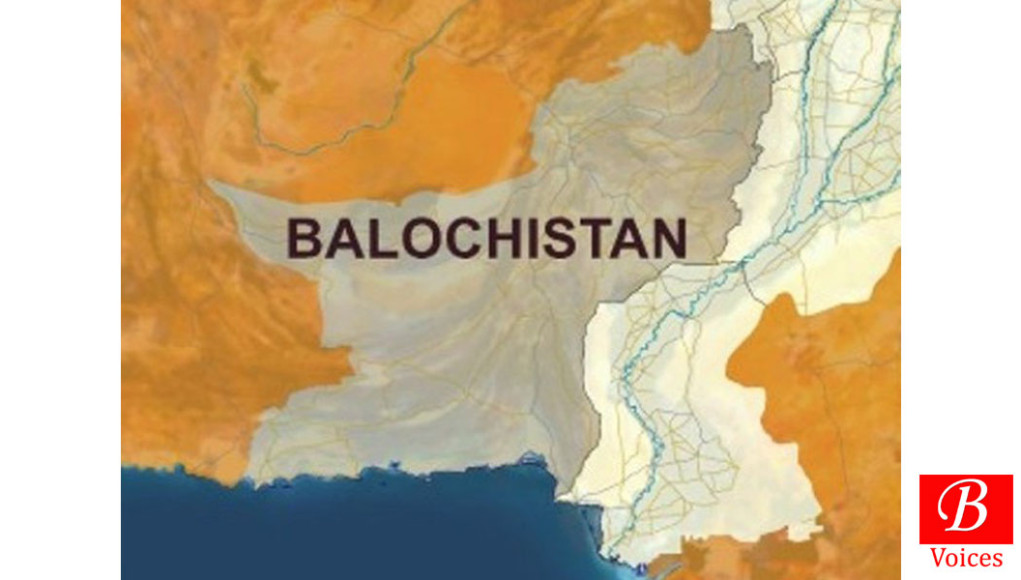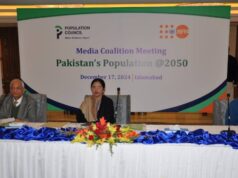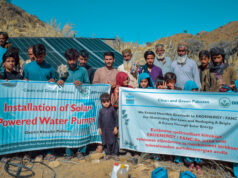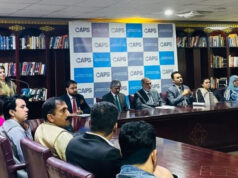Adnan Aamir
The year 2018 is about to end and many people in Balochistan will be happy to bid the year farewell – it was not a good year for them. These people saw devastating terrorist attacks, became victims of mismanagement of the provincial government and were disappointed with the federal government as well. There was hardly any good news for the people of Balochistan, except for the adoption of a principled stance on China-Pakistan Economic Corridor (CPEC).
A year in politics
The year started with bad news for then chief minister Sanaullah Zehri. Disgruntled members of the Pakistan Muslim League-Nawaz (PML-N) tabled a no-confidence motion against him on January 2. He tried to fight it but failed. He resigned hours before the voting on the no-confidence motion on January 9. The rebel group with the PML-N which orchestrated Zehri’s ouster went on to elect Abdul Quddus Bizenjo as the new chief minister of the province. Moreover, the same group went on to elect five senators from Balochistan in March 2018. Sadiq Sanjrani was one of them. He made history by becoming the first chairman of the Senate from Balochistan.
The political drama was yet to end in Balochistan. In the last week of March, the rebel members of the PML-N formed Balochistan Awami Party (BAP). The primary manifesto point of BAP was that decisions of Balochistan will be made in Balochistan, as opposed to Raiwand or Larkana, a reference to the seat of the leadership of the PML-N and Pakistan People’s Party (PPP) respectively. Detractors, however, alleged that BAP was created by the establishment to take full control of the affairs of Balochistan.
BAP entered the July 25 general elections as the favorite party and its results did not disappoint. It emerged as the single largest party, with 20 seats in the house of 65. BAP formed a government with the help of PTI and other smaller parties. Jam Kamal, president of the party, assumed charge as Balochistan’s chief minister on August 18. As the sun sets on 2018, BAP’s government firmly maintains its control of the province.
The federal government keeps dilly-dallying on the demands of the province, and the Chinese say internal disputes on CPEC projects are not their concern
Economy: Nothing from CPEC?
A visible change on the economic front was BAP’s unapologetic stance vis-à-vis China-Pakistan Economic Corridor (CPEC). Since its inception, BAP leaders in Balochistan’s government openly blamed the PML-N for preventing Balochistan from reaping the benefits of CPEC. Their stance was surprising for many because in the past, provincial government leaders of Balochistan never spoke against the federal government, at least when they were in power.
CM Kamal made the decision of ending the practice of selling land to foreign companies. This was specifically directed towards Chinese companies and the government made sure that they only got the land through a lease in the future. By keeping up a tough stance on CPEC, Balochistan government made a strong case for the province in 8th Joint Coordination Committee (JCC) of CPEC. The provincial government demanded $500 million in socio-economic uplift projects and 10,000 scholarships for Balochistan, along with several other infrastructure projects. At the time of filing of this report, none of these demands had been officially accepted.
Although the government adopted a tough stance on rights of the province, it yet to see material benefits from CPEC. The federal government keeps dilly-dallying on the demands of the province, and the Chinese say internal disputes on CPEC projects are not their concern. In these circumstances, 2018 did not end up as an economically gainful year for Balochistan.
Terrorism: 9/11 of Balochistan
This year Balochistan witnessed sporadic incidents of terrors in the first half the year. However, there was no major terrorist attack prior to the election campaign. On July 13, a political gathering by BAP leader Siraj Raisani was in Darengarh, Mastung saw a suicide attack. The powerful blast took the lives of over 200 people. Siraj Raisani was also killed in the incident. Most of the victims were nomads of the under-privileged Pirkani tribe. This was the most devastating terrorist attack in the history of Balochistan in terms of death toll.
The year 2018 also witnessed the rise of Balochistan Liberation Army – Aslam group. This Baloch insurgent group carried out a suicide blast targeting Chinese engineers in Dalbandin in August. The group failed to achieve its motives and no one was killed. However, the same group struck again in November, when it stormed the Chinese consulate in Karachi. This time the attack was thwarted and it led to the death of seven people, including three attackers. Although BLA failed in both these attacks, it gave the message that it remains a continuous threat to Chinese interests in Balochistan.
‘Bad’ governance
The outgoing provincial government presented the fiscal budget prematurely in May 2018. This budget was prepared in haste and was more of an election budget. It proved nothing short of a disaster for the province. The budget for 2018-19 was valued at Rs352 billion, including a development component of Rs88 billion. While drafting such an ambitious budget, CM Bizenjo and his team failed to account for the resources for the budget. It was approved with a record deficit of Rs61 billion.
When the Jam Kamal’s government took charge, it announced that the provincial coffers were empty. Now, the government is struggling to pay salaries to a quarter of a million public employees, let alone funding development work.
Bad governance remained the hallmark of all three governments which ruled the province in 2018. Officers were transferred on whims of ministers. Incompetent officers kept occupying important positions. No effort was made to reform the obsolete bureaucratic system. When it comes to bad governance, the status quo ruled even in the Naya (new) Balochistan.
Same Old Balochistan
The year 2018 saw Imran Khan become the prime minister of Pakistan. The PTI formed a government with slogans of change and with a promise of a new Pakistan. However, nothing changed for the better in Balochistan. Most problems of the province, such as the security situation, power shortages, share in mineral resources and the CPEC, are under the ambit of the federal government. The provincial government cannot do much to resolve them without support from Islamabad.
However, not everything was bad in Balochistan in 2018. For the first time, female students were allowed to visit the spacious lawns of the Governor House. Multiple successful desert car rallies were held, where the ruling elite had quite a lot of fun. A new law was passed to allow the chief minister to appoint eight new special assistants to control unemployment. And, one mobile traffic signal was installed to control traffic in Quetta city. With so much to be grateful for, one can hope that 2019 will be a better year for the people of Balochistan.
Article originally published in The Friday Times
Share your comments!








